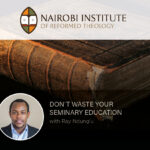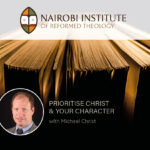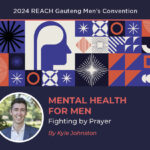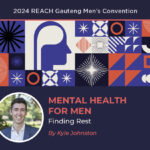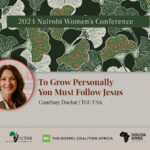The Nairobi Institute of Reformed Theology exists to equip men and women for faithful gospel ministry. Over three conversations sourced from the Ekklesia Afrika podcast Studious: For The Church, Joshua Lemayian discusses different aspects of theological education and how they should all ultimately point us to Christ.
Here is the second in a series of podcasts aimed at challenging and equipping theological students at seminary (or college). In it we get to listen in on a conversation between Joshua Lemayian and Raymond Ndung’u, a student and teaching assistant at the Nairobi Institute of Reformed Theology (NIRT). Their conversation centres on the academic aspects and benefits of education at seminary.
Being a Christian at Seminary
The purpose of Joshua and Raymond’s conversation is to think through how studying in seminary overlaps with our Christian life; and how theological studies are an opportunity to trust in God and to live the Christian life. Like every other aspect of their lives, Christian students must think carefully about how their faith informs their approach to theological education.
We’ve idolised education, but we’ve also demeaned it because we have detached it from God.
Why? Because there is a very popular lie that theological students haven’t escaped. This lie treats education as a god; as the source of our identity and provision. As Raymond says, “We’ve idolised education. But we’ve also demeaned it because we have detached it from God.” Raymond goes on, “A seeking after titles that shows that Christ is not as impressive to us as he should be.” Of course, this isn’t to ward people off of pursing qualifications. But the Christian must ask themselves what they’re seeking. Is it God? Or is it something else? Recognition. Opportunities. A title.
When we put theological education and our time at seminary in its right place, under God, we have the freedom to treat our studies as an opportunity for personal growth and worship. We also have the freedom to enjoy fellowship with our classmates, instead of viewing them as competition and a threat to our identity. Thus seminary can become a tool that God uses for our good. “Let not seminary replace your walk with the Lord,” warns Raymond. “Let it come alongside that, and be a support and a base that enables you to even more deeply and more honestly walk with the Lord.”
Other Content on How to Approach Your Education at Seminary
What University Won’t Teach You, But You Need To Know
3 Pitfalls to Beware of at Theological College
Does Your Life Image God? // Africa Study Bible
10 Mistakes I Made as a Theological Student
Transcript
How to Approach Your Education at Seminary
Host: Hello, and welcome to this episode of Studios. Studios is a podcast brought to you by the Nairobi Institute of Reformed Theology. To learn more about NIRT, you can go to ekklesiafrika.org/nirt.
Today, I am joined by Raymond Ndung’u. We’re here with Raymond Ndung’u, who is just finishing up his studies at NIRT and is currently serving as a teaching assistant.
Host: Karibu sana (You are very welcome), Raymond. It’s good to have you.
Raymond: Asante sana. (Thank you.) It’s good to be here with you.
Host: Good. And today’s conversation is the first of what we hope to be a four-part conversation on studying in seminary—thinking about studying at seminary in a way that glorifies God, avoids burnout, and—what that entails, as we will see—means countering some lies that we may have believed.
In many ways, we’ll see how studying in seminary overlaps with our Christian life and is, in a very clear way, an opportunity to trust in God and to live the Christian life. Raymond is here to help us with that.
So, Raymond, karibu sana. Where—when you think about seminary—you started seminary a few years ago. Could you tell us how you first ran into difficulty in seminary and how you realized you needed to rethink your whole approach to seminary?
Raymond: Yeah, so thank you once again for having me. It’s a joy to be here. It’s always a joy to think through these things, because, as you can imagine, these are things that one keeps thinking through as you continue.
So yeah, I started seminary around three years ago now, and I think very quickly there were a few things that became an issue for me. First of all, it’s just the intensity of the study—I honestly didn’t expect to find it that difficult. And that then led to various questions, like, “Why in the world am I actually doing this?” Because, yeah, I think it’s something that we find in life: that the more difficult something is, the better the reasons and the motivations you need to be able to actually do it well.
Host: Yeah, thank you for that. So, you have written some stuff on this, you’ve given a lecture or two on this particular subject. You usually start by telling the students five things to think about in order to make the most use of this material. Could you briefly share with us what that is?
Raymond: Right, um, yeah. So, I have held two seminars now on thriving in seminary, and as they’re coming in, I ask them to think about that seminar as a time for sanctification.
So, in some ways, as someone is listening to this podcast, that’s something I would be asking them to think about—that what we are about to say, and the things we are about to suggest, are not merely tactics and tools. But it’s actually a conversation on sanctification, that we are praying we will grow in Christlikeness.
Raymond: Uh, with regards specifically to how we think about education—and seminary as well. And also, you know, secondly, that the things we’re going to talk about here will not be exhaustive, but rather should just open up a doorway, an area of conversation and thought that every student needs to conduct for themselves more and more, in order to grow into glorifying God more with our time as students.
I call them to come expecting to be encouraged about ways that they’ve been doing things rightly, but then also to come prepared to change. And some of the changes that we will recommend in our four-part podcast here—some of them will be radical.
So, if some students are used to certain formats of entertainment that might lead to a drop in their attention span, you know, etc.—some of it is just heart issues in terms of the way the world views education: as if you study, then you can prove how bright you are, you can get a better job in the future, etc.—it’s all about you. And we’ll talk about some of that today. So, that will take a radical shift when you’re coming in.
And so, basically, I’ll be telling them that when you start to think through these things, then all of your life is up for grabs—because doing seminary for God’s glory will demand all of your life. But it is worth it, because God is worth it.
Host: Amen. Before we go to the next—which is pretty much the best, the most significant part of your thoughts on this particular matter—talk to us about: Why seminary? Why would someone consider going to seminary? What would be the things that they’re looking into their lives that tell them, “Maybe the Lord is pointing you towards seminary”? If you could briefly share about that, and then we’ll proceed.
Raymond: Yeah, um, so I think it will be different for different people. The most sort of mainstream answer I could give on this is: if you’re thinking about the pastoral ministry, or serving as a missionary, or any vocational sense of ministry, seminary is—it’s not, like, compulsory, I wouldn’t want to say that—but it is so important as a season in which you can actually think through what the Bible teaches about all sorts of things, and wrestle with some of the criticisms and feedback—some of the contentions that will inevitably arise when one is doing ministry in all sorts of ways.
So yeah, if someone is thinking about the ministry, I would definitely commend seminary. But again, I would commend it with this pinch of salt, right? Seminary done a certain way.
So, it’s very possible to study the Bible and theology for yourself—for your own glory—as a sort of academic realm where you prove yourself the victor. You can approach it that way, and that would be a waste, in my view. But, when you’re approaching it with a desire to know God and to glorify Him, then it’s really a helpful time.
There will also be some people who will just desire to be better church members, to understand the Bible better, and to grow in their Christian walk. And because all Christians are called to disciple one another, it will never be a waste to actually devote time to learn what God says in His Word.
So, I would commend it for everyone—but in particular, those who are thinking about ministry of different kinds.
Host: Well, good. So, you and I, when we’ve spoken about this, it’s very clear that we both come from the same education system—both grown up in Kenya, gone through the 8-4-4 system. And in our conversations—just the two of us and with other people who have gone through the same system—we can see there’s quite a few drawbacks that it fits us with.
You even call them lies. So, what are ways you think that 8-4-4—the education system that we went through in primary, high school, into undergrad—what are some ways in which it has morphed and colored how we view education? And what are the things we need to correct before we go into seminary, if we are to thrive?
Raymond: Yeah, um, yeah. So, as you’re saying—8-4-4, the 8-4-4 system—and in some ways, this shouldn’t surprise us. Because the philosophy of education, just like anything else in the world, will be colored by someone’s perspective.
The way education was presented to us, and the way we understood it ourselves, is very much a product of society as it is—rebellious against God. And even our own flesh—what we wanted to make of education—will obviously be informed by our own sinful impulses.
But yeah, I have six things, six areas that I think are some of the biggest lies that we bought. That were sold to us because of the influence of the world, and that we bought because we wanted to do something with education sinfully.
The first one—and really the main one—is that education is god.
So, in one of our classes, one of our professors was teaching us to break down idolatry in a Trinitarian sense: how do your idols pretend to be God the Father? How do they pretend to be God the Son? How do they pretend to be the Holy Spirit?
And when we think about education and the way we have characterized it in Kenya, we think that education is God the Father, in the sense that it will care for you, it will protect you, and secure your future. So normally, guys will be told: “Study hard so that you can secure yourself a good future,” etc.
I mean, there’s some truth to that. But there’s a way in which, idolatrously, you can think of education as the thing that secures my future—my welfare is wrapped up, especially, in how well I do in school. And that’s just idolatry. That is taking the glory that belongs to God and putting it in education.
Secondly, we think that education is God the Son—that it is our redeemer. A lot of political rhetoric will be given about how, you know, “the way to save Kenyans,” or “the way to secure the future of our children,” is to make sure that they get a good education. Because education is this saviour—it’s this redeemer—that when they get it, then they will be “sorted.”
And so, again, there’s some level of truth in that—in the sense that it does open up opportunities, and God uses it to open up opportunities. But it can so quickly detract from the glory of Christ as the one on whom all our hopes should hang.
Yeah. Thirdly, we think that education is the Holy Spirit, in the sense that it sanctifies you. There are so many subtle clues of this that we see—that we assume that simply because someone is learned, they will be morally upright.
So, it’s easier to trust a doctor when they say something than it is someone on the street. But actually, we have seen so many cases of the most learned being some of the worst swindlers and fraudsters.
And so, yeah—education as a morally sanctifying tool. Again, there’s some truth to that—in the sense that when you know more things and learn more things, you’re able to think more deeply, and it’s able to restrain you a bit more. But it’s also not true that it can lead to a morally upright and sinless society.
And yet, sometimes we kind of expect that—that the reason there’s cattle rustling in Northwestern Kenya is because guys are not learned. So, the way to fix that problem is to give them education, as a thing that will then make them morally upright.
And there are just subtle lies inside there that detract from the glory of God.
Host: Yeah, so good. And then there is just also the fact that part of what is informing this is that our education quickly becomes our identity. It becomes, “I am, at heart, my educator.” Could you tell us a little about that?
Raymond: Yeah, yeah. So, the second thing—and tied also with the third thing that I was going to mention, and you’ve touched on that—is that I am at the heart of my education.
So first of all, the thing we see there is an atheistic understanding of knowledge and study: that I can know things without reference to God, and I can define them as they are in themselves, with no reference to God at all. And that’s just—that’s an atheistic understanding of the world.
And yet, as believers in the Lord Jesus, we do not accept that. You have not understood anything before you’ve understood it as it stands in relationship to God.
But because we think that education is somehow a merely materialistic process, then for sure we end up being at the heart of our own education. We’ve done away with God—both as a subject of study and as the one from whom all things flow. Right? So when you learn geography, it’s all just the geographical processes that are going on—it’s not God who is doing these things.
And so I end up being at the heart of my education in the sense that education exists to provide me with opportunities. I study to make a name for myself. My academic achievements give me worth and meaning, and therefore I can look at my results and know the kind of person I am, the value that should be assigned to me, the future that I can expect to have—all of that flows from what my education says about me.
And so, at the heart of this approach really is pride—that says, “My education—the reason I study—is me.” And so, I wouldn’t study if I was not gaining.
And as we’ll be talking about correctives to some of these approaches, one of the questions we have to ask is: Are things worth knowing because God made them? Or would I study something because it would make me more useful to other people—and not so much earn me a lot of money?
So certain questions like that we find difficult to answer because we come at education as this thing that is for me. Yeah.
Host: So good. I bet a lot of people who have gone through the system will be relating with this as you’re going through them.
Could you tell us about the role of competition in education, as we are trained to view it when we grow up?
Raymond: Yeah, yeah. So again, this flows out of what we’ve already said, right? If education is god, and we’ve done away with God, then it’s all about me.
And such an approach will necessarily be competitive, because education—then, what it says about me—it says about me with reference also to what it says about you. So if education is the place where we draw our identity and understanding of ourselves, then it’s saying something about me, and it’s also saying something about you.
And I will not sit here and let it say that you are better than me, right?
So if it’s where we’re drawing our identity from, then you realize that when you understand a concept better than me, then you are better than me. That way of thinking inevitably flows out of that.
And so it becomes very competitive when our identity is tied to it. It’s a zero-sum game. And so instead of thinking about education as cooperation between colleagues, friends who are learning things together, who are excited to learn new things—then I’m thinking, “Ah, I really don’t want you to understand more than me.”
And this also ties into the importance we give to exams as the place – sort of, you know, we think about ourselves in education kind of like gladiators, and then the exams is the Colosseum. That’s where we fight. We leave it all out there, and we prove—we show—who really is the best man or woman in the arena.
And so instead of education being a team effort—instead of a classroom being a place where guys are excited to learn new things—then sadly, in my heart, my goal is to understand more than you.
And it infuriates me when the exam tells me that you have understood more than me, because then that tells me that you are worth more than me. You have a brighter future than I have, etc. Right?
And so it’s just really problematic at the end of the day.
Host: Yeah, I could just see how that flies in the face of the gospel, which gives us new identities based not on our performance but on Christ’s performance. And it’s amazing how it can do that for us.
All right. So, if we were to shift gears and think about how to go about seminary the better way—in a way that glorifies God, that does good to others, and that brings good to us as well—could you introduce that to us as a possibility? Why that is how we should be thinking about education in general, and seminary specifically?
Raymond: Yeah, um, yeah so—as a last thing—and then I’ll shift to that—the last problem I see with the way that we’ve understood education generally is that we see it as primarily instrumental, as something that we use, not something that we gain, not because it is worthy in itself, but because it leads to certain outcomes.
So, you know, that’s always been the tale that we’re given when you’re in primary school: “Study hard so that you can get to a good high school, so that you can get to a good course in the university, so that you can make a lot of money.”
And it’s especially instrumental with regards to the making of money. So we start out with this idol of the love of money, and then it just boils down to dictating the way we do school, and the possibilities that we see will amount to our lives as a result of that.
And so we think of education merely as a thing to be used—to make money, to be a useful part of the workforce, etc.—and not knowing things because they are worth knowing, not learning things because God created them and because he created us with an ability to understand the world that he has formed, etc.
And so that also demeans education in itself. So in some ways, we’ve idolized it, but we’ve also demeaned it because we have detached it from God.
And so yeah, there will be questions, for instance, in someone doing seminary in order to go to a very hard place of mission, where these people are not as literate. So it’s like, “Ah, you could have taught in a prestigious setting,” etc. So it’s easy to import some of these ways of thinking into seminary.
And that then leads us to our transition.
It’s important for us to think through education more broadly—especially for those who are parents and would like to present a better vision for education to our kids—but also seminary specifically. It’s important to do that because everything you do, God says, do it unto the Lord.
And so whatever it is we are doing—before we’ve really wrestled with the sinful realities of our hearts with regards to seminary education—it will be driven by selfish ambition, my own pursuits, etc. It will be sinful.
And so: How do we then approach seminary in ways that, instead of dishonoring God, actually glorify him?
Which is what seminary education—and I argue, education more broadly—should do.
So that’s the basis for this conversation: There’s a wrong way to think about education, and a right way to think about it. And with Christ having redeemed us, then he deserves all of our lives—and education included.
So that’s why we need to start having this conversation.
Host: Good. So let’s think about—spend some time thinking about that.
So education is not God. So, countering the lies that we talked about earlier: God is God. Why is it so crucial for us to grasp that?
Raymond: Yeah. I think—so this goes broad, as we said as we were starting out. This conversation is about sanctification. It goes broader than just education.
But in every area of our lives, we must remember: God is God. No—this thing is not God.
And that’s for worship purposes. God has made us to worship him. He has redeemed us in Christ to live for him.
2 Corinthians 5 says that our Lord died “…so that those who live may no longer live for themselves but for him who for their sake died and was raised.” (2 Corinthians 5:15) And so he has a stake in this conversation, because the way we live for him will show up in all sorts of ways.
It’s the way we live for him in our families, in our church, with our relationship to the government, with our relationship to work, to education, etc.
And so it’s important for us to know—and to displace education from the place of God—for God’s glory in our lives, and as a function of our sanctification in Christ.
So: Education must not be considered as God.
With or without your education, God is able to provide for you. He is a good and gracious Father.
Education shouldn’t be a place where we are trying to secure our welfare, as opposed to trusting in God—as if he is this malevolent god who will not care for us in the future, so we have to design our own systems of welfare. No—God will care for you.
We mustn’t look for education as our hope—our ultimate hope. Not even our hope here, right? Because Christ is that hope. And we look to him, and we must glorify him.
All of our sense of redemption must be tied up in Christ.
We must not think, again, of education as what will sanctify us, or make us morally acceptable. And sometimes we even do it to gain a standing in society—to be called “Doctor so-and-so,” or this or that, “Engineer,” etc.
If our identity is so firmly rooted in our union with Christ, then we wouldn’t find those titles as being necessary, right?
So—they’re not bad titles in themselves. But there is a seeking after them that shows that Christ is not as impressive to us as he should be.
The fact that I’m united to the King of kings, who now reigns and will come back in glory to take me to himself, where I will live with God forever—the truth of the gospel should so ground my understanding of myself as to make my educational pursuits secondary.
They are good—and done for him—and they are important in that way.
But then they do not displace him. I do not look to them for my source of identity.
Host: That’s good. So, education is not God. Education is, in some ways, instrumental—when made an instrument for the right goal, which is knowing God, right? So, it is not God. It is a means through which we get to know and glorify God. Could you tell us a little bit about that—that idea of rightly ordering education?
Raymond: Yes, yes.
I think you just referenced Augustine in some ways, right? The right ordering of loves. And so, yeah—education is a good thing. Praise God that we get to learn about the world around us, the world that we live in.
And in seminary—praise God that we get the chance to actually explore what he has said in his Word. It’s absolutely wonderful and uplifting and upbuilding.
But just as everything else in our lives, education must be ordered toward the chief end of man, which is to glorify God and to enjoy him forever. And so, God should not be incidental to our education. We shouldn’t arrive at him as a sort of conclusion at the end of several steps. He is the very basis and the core of it.
And this applies to seminary—but also to all other levels of education. So that a Christian high schooler should study differently than a high schooler who doesn’t believe in God.
And so yeah—everything we learn, when we see it as either directly learning about God himself or indirectly through the learning of what he has made and what he has done—ultimately, every piece of knowledge we add to our minds, our thought processes, our wisdom in life—ought to lead to a further adoration of God, a further enjoyment of God.
Because he’s the one who has made all these things. And so he is amazing. We will never exhaust him. He’s the one who has redeemed us in Christ.
And so yeah—whether studying in seminary or more broadly, we ought to see it as a dance, if you will, in which we are more and more developing language that we can use to worship God.
So in such a way that—I don’t know, maybe in studying geology or some of those faulting and volcanic processes that happen in nature, volcanic activity—a high schooler gains more language with which to worship God from a geography lesson than they had before they went in. Right?
“Praise you, God—the God who made lava!” etc., etc.
So that’s key: to use education as a way to know and love God.
But then as well, in light of the two greatest commandments—to love God and your neighbour, right? “Love the Lord your God with all your heart, soul, mind, and strength, and your neighbour as yourself.” (Mark 12:30-31) Education should also be other-focused.
And this is really important. Because many of us—I’m sad when I say this, but I know it’s true—many of us think of the kinds of careers we would want, and therefore choose our educational paths, primarily for either the prestige it will give us, or the amount of money we can make.
But there are certain roles in society that are so helpful and so meaningful, and yet because they do not pay quite as much, they might be demeaned.
Something like a teacher, right? You know, primary school, high school, etc.—it’s such a formative way to spend your days, and yet because it doesn’t lead to as much pay, we look down upon such work. And yet it’s crucial for our society.
And for us in seminary, that might be something like looking for certain book deals, or wanting to work with certain publishers, etc., instead of actually thinking through some of the real problems in your village—some of the ways in which people back at home are wrestling with very specific challenges.
And when you write something on those issues—that book may never sell beyond your borders.
And so there’s a need there. And yet the only way we can gear ourselves towards addressing real needs in our communities is if we delink the sense we have that education…“I study so that I might make more.” That shouldn’t be the case.
It should be: “I study so that I may be more helpful.”
So that we are giving ourselves to God and to others, as God has commanded us.
I think that’s a better, more fruitful approach to education.
Host: And for seminary students, that influences who our subject is. It influences the languages we want to write in. It influences how we view and reach within our own borders, and so on.
And maybe it means that some of our theological heroes may never become our peers—because we may not get into their conversations.
But it means that we pay attention to the theological context we live in, the issues that are facing us and our people, and we think about how to write in ways that are useful to them.
Raymond: Right. Yeah. Exactly, exactly.
Host: Even though that might not be outwardly profitable, so to speak. But also—this, doing education in this way—also is an antidote to competition. And makes competition…Yeah—could you tell us a little more about that?
Raymond: Oh yeah, yeah, certainly.
Because when studying becomes an exercise in worship, then I want you to know more of God. Right? When I’m not studying to make a name for myself, and to exalt myself with a very Babel-kind-of-thinking, then I’m okay with you knowing more than I do. I’m able to take my space as one student among many who are learning things that are greater and beyond us.
I think that specifically applies to seminary, but even beyond that. Right?
And so it becomes a collaborative labour of love. We stop cutting each other down, just merely wanting to prove we are better than each other. And it becomes—it’s actually a good thing to have classmates. In the previous system, you might hate the fact that you have a really bright person in your class, because it forces you to be either number two or three or whatever.
But if we approach education as a blessing from God—right?—because he’s made us rational creatures, able to understand him, obviously not fully, because he is incomprehensible, but we can know true things about him—and also able to understand the world in which he has placed us—then we see education as this adventure. It’s something that God has prepared for us. He has put us in a world that is beyond us, and that includes us, and he has told us: “Go and exercise dominion. Learn it and know it. And especially know me and love me.”
And so then—yeah, I want you to know! And the fact that you know doesn’t detract at all from my sense of identity, which ought to be deeply rooted in Christ.
And so a class ought to be a fellowship, if you will—a place where people are just helping each other understand. And I’ve seen some dangers of the former way of thinking, where if a student is struggling to finish their assignments, there’s a sense of anger at that student who just always seems to have finished their assignments. And I’ve experienced that myself. And it’s not godly.
Because I ought to be happy and rejoice when you are able to do the work. I might even learn from you—how you’re able to plan your time in order to meet the various targets and deadlines.
So seminary ought to be a place where brothers and sisters are rejoicing in knowing God and are helping each other out. The deadlines are there, they’re very real, they’re important—but they shouldn’t lead to a sort of unhealthy competition. Rather, just helping one another, collaborating.
And this is how we should also teach our children to study, right?
“Thank God for when your brother or sister knows more than you do on a certain area—that means you can learn from them. And that’s a good thing.”
Host: So good. It’s not a zero-sum game. It’s not a negative-sum game. But because all things belong to the Lord—it’s that Corinthian spirit that Paul is countering: “All are yours.” (See 1 Corinthians 3:21-23)
This bright student is yours. Christ is yours. The world is yours. And so we do not feel threatened, and we do not seek to use education to address the areas in which we feel insecure and threatened—but instead, we use it as an exercise to glorify the God who dealt with us bountifully.
So good. Thank you so much for that.
So as we close—you have seven practical suggestions. So say someone is already convinced—they feel like, “Okay, I’d like to shift gears. There are ways in which God is already convicting me about how I’ve been viewing education.”
What are some practical ways in which I can start pursuing that way of life—that view of education, that pursuit of education in seminary?
Raymond: Yeah—before I get to this, let me just double click on something you talked about
I think for NIRT, for those of us—those who will be listening to this podcast—I’d just like to challenge them that we exist in an evangelical setting where a lot of the conversations we’re privy to are being had in the States, right?
And we thank God—many of our heroes and the guys we love and admire are American, and they write important books on various helpful issues. But I’d just like to advance an appeal to the students who are studying at NIRT:
Consider writing locally. Consider writing in Swahili. Consider writing on topics such as witchcraft—which our American heroes will just not write about. And it’s not because they’re being negligent—it’s just not a factor for them.
But for many of us, when you go to the village, you talk to someone, and witchcraft for them is such a reality. They live in genuine fear, even though they’re Christians.
And other such issues—right? Bridal prices, etc.
Consider doing…so consider learning theology globally, because of the catholicity of the church. And yet—please tailor your output to the needs around you. And there are very real needs around you.
For many pastors in Kenya, for instance, I would venture to say that more than 70% of pastors in Kenya are not able to read very fluently in English. And so, some of those heavy theological books—they just cannot access them, even if you were to give them the book itself.
And so, I see it as our work to actually step into that gap—between these rich theological resources and the pastors who are actually doing the work in the churches in Kenya. And so, please consider doing that.
You will not make as much money, for sure. Your name will not be as well-known. Your books will not cross the borders. But—they will help our brothers and sisters in the villages. And they need us to be able to tell them about Christ, about union with Christ, teach them the Trinity, teach them sanctification in language they can understand—so that they may grow in their ability to glorify God.
So, I just wanted to land that as an appeal.
Host: Yeah. Thank you so much for that. Thanks for putting that in there. That’s very helpful. Although, I’m sure some American publishers would also say, “You’re not going to make money writing academic work!” [Laughter]
Raymond: [Laughs] Right, right.
Host: Thanks for that exhortation.
Raymond: So—seven practical suggestions for implementing this as a student.
These are not exhaustive. These are just ways that I’ve found helpful in my own time as a student. And I’m sure you can add more. And please, if we meet on the streets, suggest more to me!
So the first thing is: view the tasks that you have from your professors not as ultimately from them, but as assigned to you by God, right? So there’s a way in which—I remember in my first year, because of the feeling of being overwhelmed—I developed quite a bit of bitterness towards my professors. I was like, “Why don’t you guys see that this work is way too much?”
But God has been shifting my attention, because again, as we’re saying, God is not incidental to education—He is the basis upon which it is rooted. He is the goal of it. He’s the one ultimately—because He is sovereign—who then details how much work you have to do from the professors. And so, that shifts your gaze from your professor to God.
When you’re viewing those tasks as coming from God, then think of doing your assignments as a stewardship, as a way to glorify God, as a way to use your mind and your time for God’s glory in those respective ways that have been chartered for you through your professors by God Himself.
So secondly, that will mean that you can lament deeply and genuinely when you feel like the work is too much.
The bootstraps approach necessarily follows from a self-centered, self-important view of education. But when you see education as something that you are doing before God—when you see it as what Calvin would say, negotium cum Deo (business with God)—then you will be able to come to Him genuinely with lament when you feel like the work is just too much.
The third thing is: you pray that you’re able to implement what you’re learning in seminary in your walk with the Lord, in your participation in the church, in your marriage (or in singlehood), and in your family. Remember that theology is for life.
Someone has defined theology as this: the art of living rightly unto the Lord. Right? So, theology is for life. Don’t just learn it in order to be able to reproduce it in conversations and appear impressive. Actually, when Jesus says that “to whom much is given, from them much will be expected,” (Luke 12:45) that means that stepping into seminary is very dangerous business, because that means that you will know much more of the truth of God—for which you will be held to account.
And pray, therefore, every day, that every bit of truth that you learn would actually find expression in your worship of God, in your love for others as well, and in the way you’re able to implement it in your life.
The fourth thing I would say is: be ordered. Be consistent in the way you approach your work, and image God in the way you work. So, we’ll talk about this next time in terms of best paradigms for time management. We’ll be working from the Fourth Commandment, in which I will contend that God, in giving the command the way He did, was saying that the way we are to work and rest is to image the way He worked and rested in creation.
And so, we’ll see—He is orderly in the way He approaches work. He’s able to subdivide His tasks, you know, with steps leading up to greater accomplishment.
So don’t be the kind of student who promises yourself—I did this in first year, it was so frustrating—I used to promise myself, “Today I will read all of the Confessions of St. Augustine.” And, as you can imagine, evening comes, I feel like a failure—I haven’t read the whole thing. And so, realistically assign the work, and give each chunk the amount of time it demands. So yeah, be able to plan your time well, because you will not just accidentally be able to do seminary well if you’re not organized.
So the other thing—the fifth thing—is: while you do need to read in order to finish (because there are timelines and deadlines), please make sure that you also are reading to grow and understand.
So, this is a dynamic that’s very hard to nail down in seminary, because the readings are so good, and yet there are also timelines. Some students, perhaps, will tend to gravitate towards just reading to finish, and so they hardly get anything from the books—and these are wonderful books. But then some students will aim at getting everything, and wrestling with every sentence, and that will then make it a bit difficult for them to finish the work that they need to do.
So, this is more of an art than a science. But there are things that you can do to improve your reading and your comprehension, and we will dedicate our third podcast to that question of: how do we read well? Just so that students in seminary are able to both finish their readings, but—more importantly, I would say—understand what the readings are all about and be able to implement them.
The sixth thing is: learn to write with care, as an act of love for those who will read your work. For us as Kenyans, unfortunately, our culture is not very much a writing culture. And so, even when students devote a lot of time to seminary, a lot more time sometimes is devoted to reading than to writing.
So, there’s this paper I need to write on, and so I’ll read a bunch of books, and then I’ll just thrash something quickly together. That’s not very good, because writing in itself is a skill that requires commitment to learn and to do well. So, we will touch on this in our fourth podcast. But yeah—think about writing. Read resources on it that will be helpful to you.
And lastly, point number seven here is: train yourself to pray before, during, and after assignments. And please, do not under any circumstances replace your personal time in God’s Word with the assignments you do in seminary.
I’ve heard people say that the temptation for pastors—the threat that pastors face—is for God’s things to be normal, ordinary things. It’s when the holy becomes sort of profane, because you handle it so much. And so, it’s possible for us to become professionally minded, where I approach the Bible as a reference book for theology, not as God’s Word to me today.
And so, that’s a danger in seminary. It’s possible for you to be doing well in your assignments, but actually not really committing yourself to God—not praying, not reading His Word, not walking with fellow saints.
And so, in such circumstances, it’s important to remember that your walk with the Lord remains the central thing about your life. Let seminary be added to that—not replace it. Let not seminary replace your walk with the Lord. Let it come alongside that, and be a support and a base that enables you to even more deeply and more honestly walk with the Lord.
Host: Yeah. Thank you so much, Raymond. Those are very helpful. Thank you so much for even touching on what is coming up. Looking forward to continuing the conversations.
Very grateful for the ways in which the Lord has taught you—through your own mistakes, through your own growth curve. In many ways, brother, that just gives so much texture to what you are saying, and it’s very helpful.
I thank you for pointing us ultimately to God, on whom we need to depend, and with whom we must do—and seeing how we cannot carve out an area of our lives called “seminary” or “education” where we’re not worshiping. But instead, actually—thank you for casting a light and showing us: no, this is part of what it means to live the Christian life. This is part of what it means to live in a way that trusts God.
Thank you so much. I’m looking forward to the upcoming conversations. And thank you all for listening to our conversation. We hope that this has been edifying to you. We hope to bring three more episodes on this particular subject of just being a student in seminary, which seeks to glorify God and do good to others. We hope that this will be helpful.
For more information on NIRT, please go to:
ekklesiafrika.org/seminary
May the Lord bless you and keep you.
Raymond: Amen. Thank you.


